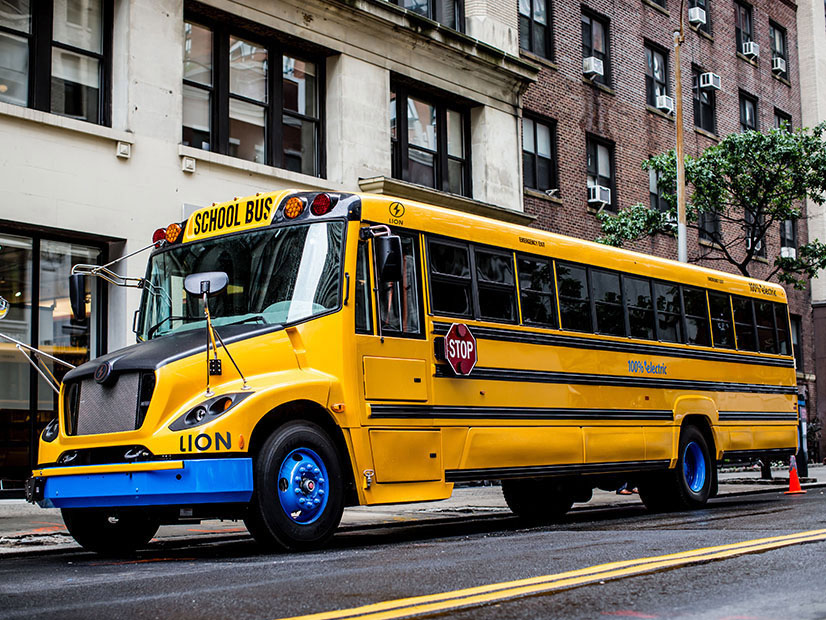The U.S. Department of Transportation’s Federal Transit Administration (FTA) announced Tuesday that it’s releasing $1.66 billion in grants to nearly double the number of non-emission buses on the nation’s roads with just one year of funding.
The FTA’s awards will fund the purchase of 1,800 low- and no-emissions buses and construction of related facilities for 150 bus fleets in 48 states and territories.
More than 1,100 of the buses will be zero emissions, helping to meet President Biden’s goal of net-zero emissions by 2050, the FTA said.
The DOT estimates that every zero-emission bus eliminates 1,690 tons of CO2 over an average 12-year lifespan, equivalent to removing 27 cars from the nation’s roads.
During a briefing Monday preceding the announcement, FTA Administrator Nuria Fernandez said the funds will help cash-strapped transportation authorities modernize fleets while making the switch to more sustainable fuels.
“When a transit door opens, whether it is a bus, train or ferry, it is a great equalizer for everyone in our nation,” Fernandez said in a press release.
The bus grant awards are funded through last year’s Bipartisan Infrastructure Law and will be doled out under the FTA’s Buses and Bus Facilities and Low or No Emission Vehicle programs. Applicants were subjected to competitive grant selections. The FTA received 530 eligible applications requesting $7.7 billion in funding.
The Low or No Emission Grant Program allows transit agencies to buy or lease American-made vehicles, while the Grants for Buses and Bus Facilities Program encourages such agencies to purchase and rehab buses and vans and build maintenance facilities. The programs will receive $5.5 billion and $2 billion in infrastructure funding, respectively, over the next five years. For fiscal year 2022, $1.1 billion in grants were available under the Low or No Emission Grant Program, with the remaining $550 million available under the Buses and Bus Facilities Program. The amounts are approximately six times the previous five years of funding, the FTA said.
Examples of this year’s recipients include the New York Metropolitan Transportation Authority’s (MTA) $116 million purchase of about 230 battery-electric buses to replace diesel buses; the Los Angeles County MTA’s $104 million purchase of 160 battery-electric buses; the Memphis Area Transit Authority’s $54 million project to build an operations and maintenance facility; and the Colorado Department of Transportation’s $34.7 million electric charging bus depot for Summit Stage, a rural transit agency.
The administration’s distribution will also fund smaller ticket projects, like the $402,257 needed by the Metlakatla Indian Community in Alaska to buy a battery-electric bus and charging equipment to service a route to and from a ferry. The City of Midland, Mich.’s Dial-A-Ride service will receive $167,257 to buy electric vans to replace older gas buses.
For the first time, funding will be earmarked to train transit workers on how to operate and maintain clean buses, the FTA said. The administration allocated 5% of this year’s funds to develop transit workforces.
Mitch Landrieu, White House infrastructure coordinator, said the country’s full transition to electric vehicles will continue with the newly passed Inflation Reduction Act, which focuses on substituting the country’s passenger and heavy-duty vehicle fleet with clean fuels. (See What’s in the Inflation Reduction Act, Parts 1 and 2.)




